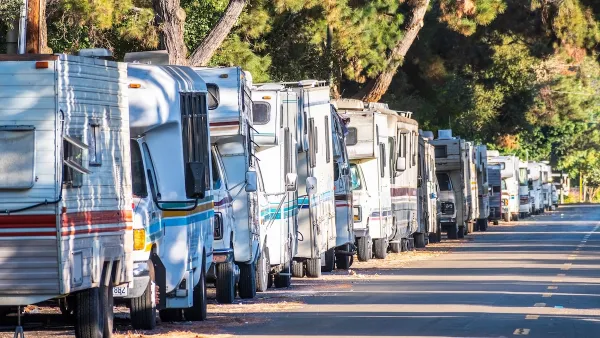As cities struggle to deal with the persistent challenges of homelessness, one writer suggest there's a better way to address the problem than by simply clearing out homeless encampments and tent cities.
Lisa Daugaard notes that shutting down homeless encampments might feel like progress, but "it is not an effective choice if the goal is actually reducing the number of people living outdoors." In fact, "[i]n the absence of real alternative accommodations for people currently camping outside, these closures are counter-productive flailing that do far more harm than good."
The ongoing controversy inspiring the article by Daugaard concerns "The Jungle" (also known as the Beacon Hill greenbelt) in Seattle. According to Dauggard, the real question that should be asked when deciding the best policies to address homeless encampment follows: "How can we best and most quickly get to a point where people don’t have to resort to living outdoors?"
Dauggard provides five answers to that question, each with more detail included in the article:
- Rethink the camp closure approach.
- Improve city services in encampments.
- Build relationships.
- Employ harm-reduction techniques that work.
- Develop more inclusive housing options.
FULL STORY: 5 real fixes for homeless encampments

Maui's Vacation Rental Debate Turns Ugly
Verbal attacks, misinformation campaigns and fistfights plague a high-stakes debate to convert thousands of vacation rentals into long-term housing.

Planetizen Federal Action Tracker
A weekly monitor of how Trump’s orders and actions are impacting planners and planning in America.

In Urban Planning, AI Prompting Could be the New Design Thinking
Creativity has long been key to great urban design. What if we see AI as our new creative partner?

Pedestrian Deaths Drop, Remain Twice as High as in 2009
Fatalities declined by 4 percent in 2024, but the U.S. is still nowhere close to ‘Vision Zero.’

King County Supportive Housing Program Offers Hope for Unhoused Residents
The county is taking a ‘Housing First’ approach that prioritizes getting people into housing, then offering wraparound supportive services.

Researchers Use AI to Get Clearer Picture of US Housing
Analysts are using artificial intelligence to supercharge their research by allowing them to comb through data faster. Though these AI tools can be error prone, they save time and housing researchers are optimistic about the future.
Urban Design for Planners 1: Software Tools
This six-course series explores essential urban design concepts using open source software and equips planners with the tools they need to participate fully in the urban design process.
Planning for Universal Design
Learn the tools for implementing Universal Design in planning regulations.
planning NEXT
Appalachian Highlands Housing Partners
Mpact (founded as Rail~Volution)
City of Camden Redevelopment Agency
City of Astoria
City of Portland
City of Laramie




























